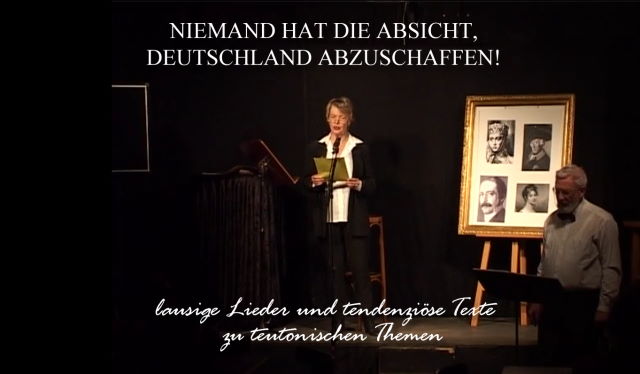-
On 20 July 1944 the criminal means (murder of the stenographer Dr. Berger, Air Chief Marshall Korten, General Schmundt, Colonel Brandt, as well as the attempted assassination of Adolf Hitler) is celebrated and not the sacred ends (salvation of the German Reich).
-
Adolf Hitler was full of contempt for death. He was not agitated by the fact that his life should be attempted, but on the contrary, by the fact that the assassins were not prepared to shoot him with the pistols which they carried along with them. He was bewildered by the fact that the murder of the innocent mates of the assassins was preferred to his own personal execution.
-
The assassins failed because their resistance was a moment of their being overcome. The assassins did not have an alternative concept of a political system; they not only wanted to save the German Reich (inclusive of Posen, Alsace-Lorraine and South Tyrol) and the German folk-community, but also National Socialism. This underlines the futility of their actions. The idea that the assassins were democrats, however, is a complete fabrication.
-
Thus the murderers of 20 July were at best fools who desired to save the German Reich through implementation of the motive known from antiquity of murdering the tyrant. There was, however, no tyrant present, but a dictator whose harsh measures were fully justified from the very beginning due to the critical situation of the German Reich (declaration of war by international Jewry already in 1933). They are admirable heroes only to the collaborators who fraternise with the enemies of the Reich.
-
It was only the long rebutted lie that the Allies waged war against Hitler and not against the German Reich, which made it possible for the murderers to appear in a positive light. It was Churchill himself who spat upon the memory of the putsch-leader Stauffenberg, by jeering that even Hitler would have made peace on Stauffenberg's conditions.
-
A successful putsch would immediately have led to civil war. By itself, Stauffenberg's insane order to the Wehrmacht to disarm the Waffen SS is evidence enough for this. Civil war would have meant the end of the folk-community by the Germans themselves. The fronts would have collapsed. All successes, all sacrifices since 1933 would have become meaningless. The Germans would have left the stage of world history dishonourably and ingloriously; the ridicule and contempt of the plutocrats and Bolsheviks would have been their deserved punishment.
-
Because events turned out differently, the Germans are hated but feared. For the resurrection accomplished in 1933 can repeat itself any time – the myth of Hitler is more alive than ever. When a German complains about the chaos of the current interregnum, he is in fact saying: "We could do with a little Hitler now." But there is no little Hitler, but only one, and he was and is great – a "world-historical individual" (Hegel). And so the number of admirers of Hitler is steadily increasing amongst the youth of our day.
-
It follows from the continuing existence of the German Reich on the one hand, and its inability to act on the other, that each Reich-German has the right and obligation to act in accordance with the assumed will of the German Reich. The enemy's so-called higher morality, seemingly detached from Right, which is supposed to justify even murder, falls back upon the enemy: the agency of necessity for the German Reich ultimately also justifies the killing of the enemies and traitors of the German Reich. Only the restoring of the German Reich's ability to act will be the restoring of the ius europaeum inclusive of its Law of War (i.e. ius ad bellum andius in bello), which alone is able to end this dangerous situation.











